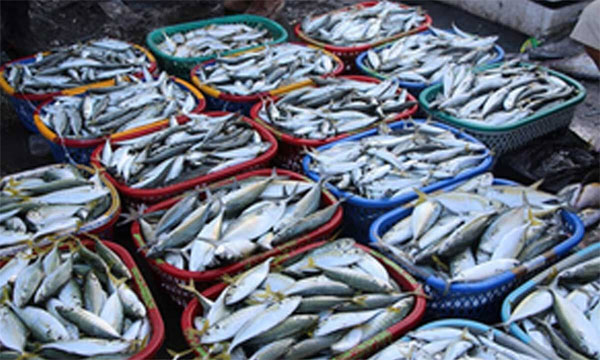Daijiworld Media Network - New Delhi
New Delhi/Kochi, Sep 26: India is making significant strides toward achieving Marine Stewardship Council (MSC) certification for 10 key marine species, a move expected to elevate the country's position in global seafood markets through premium pricing, improved market access, and strengthened sustainability credentials.
According to officials and industry experts, full MSC certification for the first species is likely by 2026, marking a critical milestone in India's effort to align its marine fisheries with international sustainability standards.
The announcement was made during a technical session at World Food India, jointly hosted by the Marine Stewardship Council (MSC), Sustainable Seafood Network India (SSNI), and the Seafood Exporters Association of India (SEAI).

“The prioritised species—such as shrimp, squid, cuttlefish, and octopus—are in advanced stages of stock assessment. We expect MSC certification for some of them as early as next year,” said Dr Ranjit Suseelan, MSC India.
Why MSC Certification Matters
Globally, seafood products certified by MSC—an internationally recognized eco-label—can command up to 30% higher prices, as per MSC data. Certification also helps exporters meet stringent environmental standards set by key markets like the United States, the European Union, and Japan.
“Eco-labels enhance consumer confidence and help Indian seafood overcome trade and tariff barriers,” said Abraham Tharakan of SEAI. “They also increase India’s bargaining power in high-value markets.”
Institutional and Government Support
The push for certification is being backed by major national research bodies, including:
• Central Marine Fisheries Research Institute (CMFRI)
• Central Institute of Fisheries Technology (CIFT)
The Union Department of Fisheries is also stepping in with plans to fund the process through the upcoming PMMSY 2.0 scheme (Pradhan Mantri Matsya Sampada Yojana).
“We’re actively considering dedicated financial allocations for research, assessments, and traceability documentation to support the MSC certification process,” said Dr Nilesh Pawar, a senior official from the department.
CMFRI Director D. Grinson George reinforced the institute's commitment to aligning India's fisheries management with global standards.
“We’re ensuring that India’s marine resources are assessed and monitored in line with international best practices,” he noted.
A Step Towards Long-Term Sustainability
Beyond boosting exports, MSC certification is expected to have a transformative impact on India’s marine ecosystems and small-scale fishing communities.
Michael Marriott, MSC Programme Director, highlighted the urgency of sustainable fisheries management.
“Over 37.7% of global fish stocks are overfished—a figure that has tripled since 1974. MSC-certified fisheries, by contrast, tend to be healthier and more abundant,” he said.
Industry leaders emphasized that MSC compliance not only benefits exporters but also ensures long-term livelihoods for small fishers, fairer market access, and responsible resource use.
What’s Next
With technical assessments nearing completion and institutional backing in place, India is poised to emerge as a key player in the sustainable seafood space. The first certification is expected by 2026, setting the stage for broader adoption across multiple marine species and regions.
As sustainability becomes a non-negotiable factor in international trade, India's move toward MSC certification reflects both a strategic export policy and a long-term commitment to marine conservation and economic resilience.